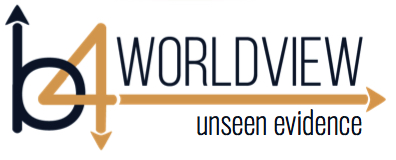
Key Thought for this session:
“Faith is the evidence I cannot observe for the truth that I must act on.”
So, one way to understand whether we are relying on faith or not is that faith may be not having to ask the question “why?” We mentioned in Session 5 that our brain pattern determines what questions are a priority for us to resolve. You may not be a dominant “why?” person. But when unusual things happen, like a premature death, or a natural disaster, a hurricane that destroys our home, or we experience a terrorist attack which seems so senseless, we are prone to ask “why?” Our soul seems to itch until the question is answered. We just naturally desire physical evidence explaining the cause of an outcome.
While all of us are not “why?” dominated people, the need to get this question answered is also based in our human condition. Answers to “why?” help us establish cause and effect. If we can determine why something bad happened, then we can prevent it from happening again. When we attempt to determine truth only from knowledge that is observable, we are uncomfortable with realities that seem random and outside of our scientific reasoning. It makes us feel out of control. People who struggle with faith also struggle with feeling out of control when the “why?” questions go unanswered. It is challenging to human nature to trust the realities that are all around us, ... meaning the realities that we cannot see, touch, smell, or hear.
This is one of the major questions vital to your ability to understand your own core assumptions beneath your worldview. Will you embrace faith as an important part of knowing what is true? Or will you see faith as a weakness that you try to ignore?
Recognizing that we are surrounded by realities that we cannot physically measure, makes it evident that we also cannot fully trust observable (or eido) knowledge WITHOUT relating to the knowledge we gain from unobservable evidence (or gnosis) and vice versa. Do we see that this point contradicts the assumptions of those who see FAITH as a WEAKNESS?... But it encourages those people who recognize that faith is actually vital to living a balanced rational life.
What we determine to be TRUE becomes a worldview ... shaped by how eido and gnosis knowledge work together to contribute to our understanding. Eido knowledge without gnosis knowledge creates apathy. Meaning, we have a bunch of facts in our head, but those facts are not personal and really don’t grab us, or engage us, or motivate us to act on what we know. So, we see that eido knowledge without gnosis knowledge can make us complacent and detached from reality, because it’s head knowledge without heart knowledge. But, on the flip side, do you see that Gnosis knowledge without eido knowledge can be risky? It can result in a touchy-feely emotionalism that is not based on facts. This is because your interpretations... of your experiences... are skewed by inevitable flaws ... in both your perceptions and in your understanding of what is actually happening. It’s heart knowledge... without head knowledge.
For example, the laws of the road provide eido knowledge that when you come to an intersection, those who have a green light can go and those with a red light will stop.
If you are a new driver or on an unfamiliar road, when you come to an intersection you are likely to slow down and maybe even stop, proceeding cautiously because you cannot fully trust your eido knowledge in this situation. Once you have more experience, you gain gnosis knowledge of the intersection and together with your eido knowledge of traffic signals, you are likely to go when it’s green without hesitating. Having your eido confirmed by gnosis provides you with an intimate understanding of traffic flow and a trust in how you can drive. If you never had eido knowledge of what the traffic light colors mean, you would come to some understanding of how to drive through intersections from your experience of what people are doing. However, in many societies people do not always obey the traffic laws and you may not draw the correct eido knowledge of traffic lights from your experience alone. This could make driving risky.